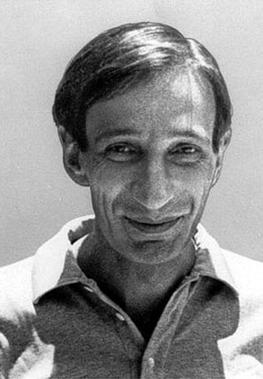Ivan Illich
A detailed overview of Ivan Illich's life and work
Ivan Illich[edit | edit source]
Ivan Illich (4 September 1926 – 2 December 2002) was an Austrian philosopher, Roman Catholic priest, and critic of the institutions of modern Western culture. He is best known for his critiques of education, medicine, work, energy use, and economic development.
Early Life and Education[edit | edit source]
Illich was born in Vienna, Austria, to a Croatian father and a Sephardic Jewish mother. He grew up in a multilingual environment, speaking German, Italian, French, and later Spanish and English. Illich studied histology and crystallography at the University of Florence and theology and philosophy at the Pontifical Gregorian University in Rome.
Career[edit | edit source]
Illich was ordained as a Roman Catholic priest in 1951. He moved to New York City in 1956, where he served as a parish priest in Washington Heights, Manhattan. In 1959, he became the vice rector of the Catholic University of Puerto Rico, where he became known for his opposition to the United States' influence in Latin America.
Center for Intercultural Documentation[edit | edit source]
In 1961, Illich founded the Centro Intercultural de Documentación (CIDOC) in Cuernavaca, Mexico. CIDOC was an influential center for the study of Latin American culture and the critique of Western development models. It attracted intellectuals and activists from around the world.
Philosophical Work[edit | edit source]
Illich's work focused on the deconstruction of modern institutions. He argued that many of these institutions, such as schools and hospitals, had become counterproductive and oppressive.
Deschooling Society[edit | edit source]
In his 1971 book Deschooling Society, Illich argued that the institutionalization of education leads to a society where learning is commodified and controlled. He proposed the idea of "learning webs" as a means to decentralize education and promote self-directed learning.
Medical Nemesis[edit | edit source]
In Medical Nemesis (1975), Illich critiqued the medical establishment, arguing that the medicalization of life leads to iatrogenesis, where medical intervention causes more harm than good. He advocated for a return to a more holistic and personal approach to health.
Later Life and Legacy[edit | edit source]
Illich continued to write and lecture on a variety of topics, including energy use, technology, and the nature of work. His ideas have influenced a wide range of fields, from education to environmentalism.
Illich died in 2002 in Bremen, Germany, leaving behind a legacy of critical thought and a challenge to the assumptions of modern society.
Related Pages[edit | edit source]
Search WikiMD
Ad.Tired of being Overweight? Try W8MD's physician weight loss program.
Semaglutide (Ozempic / Wegovy and Tirzepatide (Mounjaro / Zepbound) available.
Advertise on WikiMD
|
WikiMD's Wellness Encyclopedia |
| Let Food Be Thy Medicine Medicine Thy Food - Hippocrates |
Translate this page: - East Asian
中文,
日本,
한국어,
South Asian
हिन्दी,
தமிழ்,
తెలుగు,
Urdu,
ಕನ್ನಡ,
Southeast Asian
Indonesian,
Vietnamese,
Thai,
မြန်မာဘာသာ,
বাংলা
European
español,
Deutsch,
français,
Greek,
português do Brasil,
polski,
română,
русский,
Nederlands,
norsk,
svenska,
suomi,
Italian
Middle Eastern & African
عربى,
Turkish,
Persian,
Hebrew,
Afrikaans,
isiZulu,
Kiswahili,
Other
Bulgarian,
Hungarian,
Czech,
Swedish,
മലയാളം,
मराठी,
ਪੰਜਾਬੀ,
ગુજરાતી,
Portuguese,
Ukrainian
Medical Disclaimer: WikiMD is not a substitute for professional medical advice. The information on WikiMD is provided as an information resource only, may be incorrect, outdated or misleading, and is not to be used or relied on for any diagnostic or treatment purposes. Please consult your health care provider before making any healthcare decisions or for guidance about a specific medical condition. WikiMD expressly disclaims responsibility, and shall have no liability, for any damages, loss, injury, or liability whatsoever suffered as a result of your reliance on the information contained in this site. By visiting this site you agree to the foregoing terms and conditions, which may from time to time be changed or supplemented by WikiMD. If you do not agree to the foregoing terms and conditions, you should not enter or use this site. See full disclaimer.
Credits:Most images are courtesy of Wikimedia commons, and templates, categories Wikipedia, licensed under CC BY SA or similar.
Contributors: Prab R. Tumpati, MD

